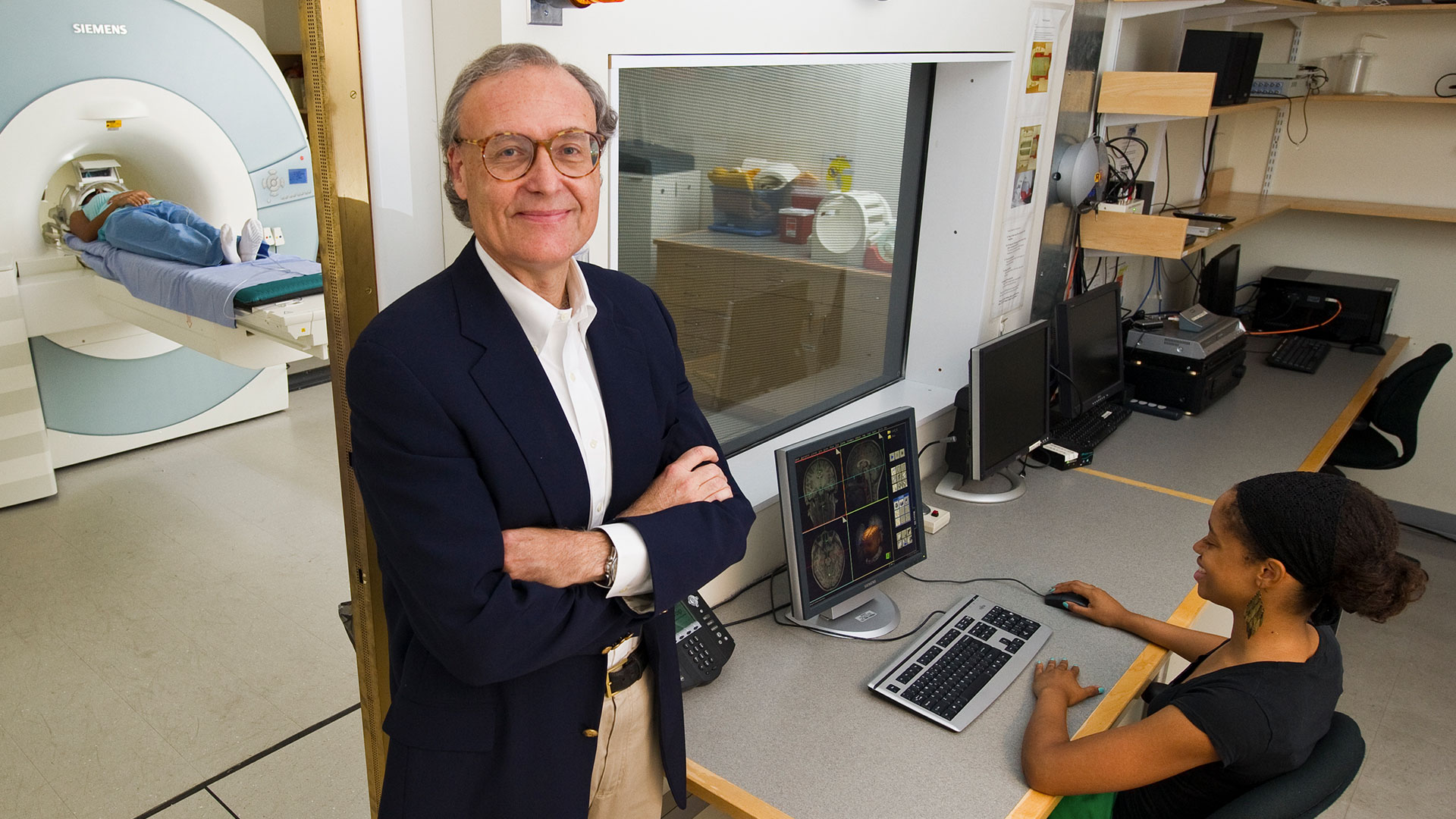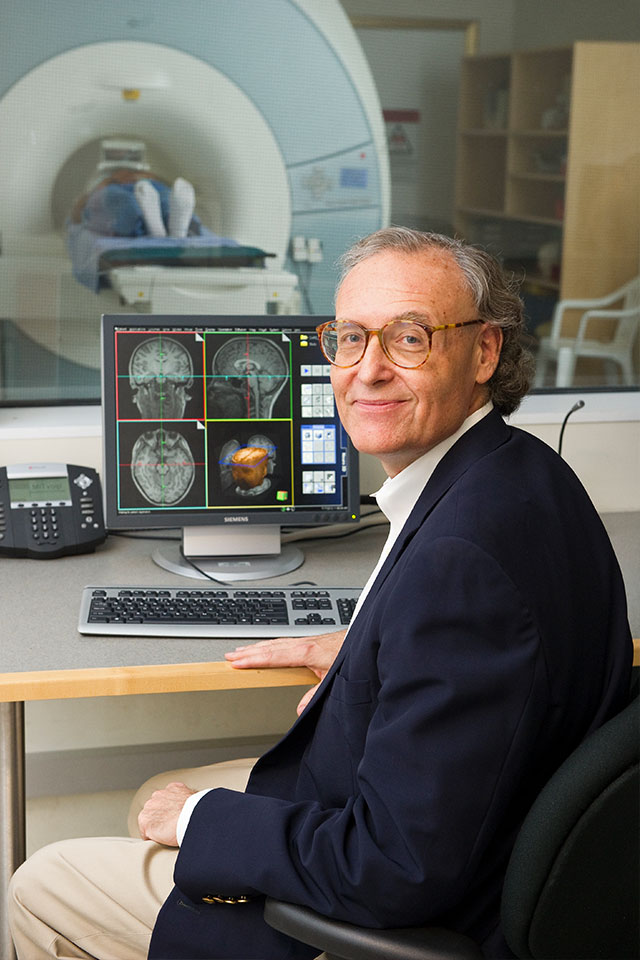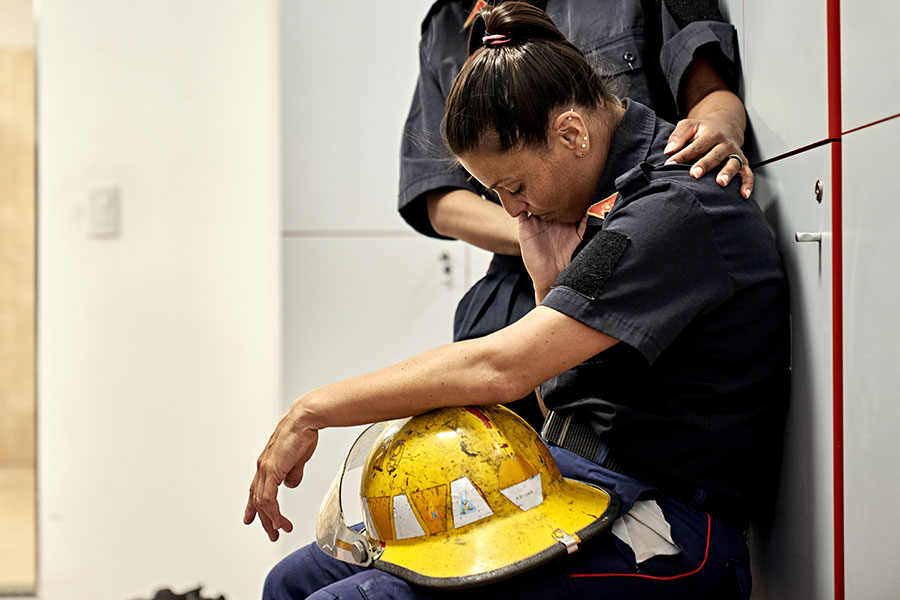Images of Mind
John Gabrieli’s goal is to understand the organization of memory, thought, and emotion in the human brain. In collaboration with clinical colleagues, Gabrieli uses brain imaging to better understand, diagnose, and select treatments for neurological and psychiatric diseases.
A major focus of the Gabrieli lab is the neural basis of learning in children. His team found structural differences in the brains of young children who are at risk for reading difficulties, even before they start learning to read. By studying these differences in children, Gabrieli hopes to identify ways to improve learning in the classroom and inform effective educational policies and practices.
Gabrieli is also interested in using the tools of neuroscience to personalize medicine. His team showed that brain scans can identify children who are vulnerable to depression before symptoms even appear, opening the possibility of earlier interventions to prevent episodes of depression. Brain scans may also help help predict which individuals with social anxiety disorder are most likely to benefit from a particular therapeutic intervention. Gabrieli’s team continues to explore the role of neuroimaging in other brain disorders, including schizophrenia, addiction, and bipolar disorder.
His team also studies a range of other research topics, including new strategies to cope with emotional stress, the benefits of mindfulness for academic performance and mental health, and the value of embracing neurodiversity to better understand autism.
Biography
John Gabrieli is the director of the Athinoula A. Martinos Imaging Center at the McGovern Institute. He is an investigator at the McGovern Institute, with faculty appointments in the Department of Brain and Cognitive Sciences and the Institute for Medical Engineering & Science, where he holds the Grover Hermann Professorship. He also has appointments in the Department of Psychiatry at Massachusetts General Hospital and the Harvard Graduate School of Education, and is the director of the MIT Integrated Learning Initiative. Prior to joining MIT in 2005, he spent 14 years at Stanford University in the Department of Psychology and Neurosciences Program. He received a PhD in Behavioral Neuroscience in MIT’s Department of Brain and Cognitive Sciences and a BA in English from Yale University.
Honors and Awards
Honors
- Member, American Academy of Arts and Sciences
- Fellow, American Association for the Advancement of Science
- Fellow, Association for Psychological Science
Awards
- 2023-2024 – Excellence in Undergraduate Advising, Department of Brain and Cognitive Sciences, MIT
- 2023 – MacVicar Faculty Fellow, MIT
- 2021 – Samuel Torrey Orton Award, International Dyslexia Association
- 2020 – Huttonlocher Award, Flux Society for Developmental Cognitive Neuroscience
- 2017 – Alice H. Garside Lifetime Achievement Award, International Dyslexia Association
- 2014 – Highly Cited Researcher, Thomson Reuters
- 2014 – Outstanding Postdoctoral Mentoring, Department of Brain and Cognitive Sciences, MIT
- 2009, 2012 – Excellence in Teaching, Department of Brain and Cognitive Sciences, MIT






